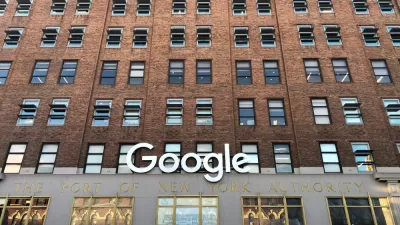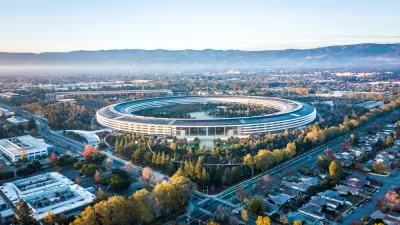In the first article of a series exploring how the physical structures that support the explosion in digital information are effecting the environment, James Glanz examines the wasteful manner in which technology companies consume energy.
The amount of energy needed to maintain the data centers supporting today's digital technology is staggering, writes Glanz. Individual data centers can burn enough energy to run a medium-size town and air quality violations have been stacking up in states with major data centers like Virginia and Illinois.
"Worldwide, the digital warehouses use about 30 billion watts of electricity, roughly equivalent to the output of 30 nuclear power plants, according to estimates industry experts compiled for The Times. Data centers in the United States account for one-quarter to one-third of that load, the estimates show."
According to Glanz, "[t]he inefficient use of power is largely driven by a symbiotic relationship between users who demand an instantaneous response to the click of a mouse and companies that put their business at risk if they fail to meet that expectation."
Should these unsustainable practices continue unchanged, warns Glanz, serious consequences could be in store for the industry. "It's just not sustainable," said Mark Bramfitt, a former utility executive who now consults for the power and information technology industries. "They're going to hit a brick wall."
Glanz's series has already attracted a great deal of debate on the Internet (no doubt using unimaginable amounts of electricity). Philip Bump at Grist has compiled a number of the responses.
Thanks to Emily Williams
FULL STORY: Power, Pollution and the Internet

Alabama: Trump Terminates Settlements for Black Communities Harmed By Raw Sewage
Trump deemed the landmark civil rights agreement “illegal DEI and environmental justice policy.”

Study: Maui’s Plan to Convert Vacation Rentals to Long-Term Housing Could Cause Nearly $1 Billion Economic Loss
The plan would reduce visitor accommodation by 25% resulting in 1,900 jobs lost.

Planetizen Federal Action Tracker
A weekly monitor of how Trump’s orders and actions are impacting planners and planning in America.

Wind Energy on the Rise Despite Federal Policy Reversal
The Trump administration is revoking federal support for renewable energy, but demand for new projects continues unabated.

Passengers Flock to Caltrain After Electrification
The new electric trains are running faster and more reliably, leading to strong ridership growth on the Bay Area rail system.

Texas Churches Rally Behind ‘Yes in God’s Back Yard’ Legislation
Religious leaders want the state to reduce zoning regulations to streamline leasing church-owned land to housing developers.
Urban Design for Planners 1: Software Tools
This six-course series explores essential urban design concepts using open source software and equips planners with the tools they need to participate fully in the urban design process.
Planning for Universal Design
Learn the tools for implementing Universal Design in planning regulations.
Caltrans
Smith Gee Studio
Institute for Housing and Urban Development Studies (IHS)
City of Grandview
Harvard GSD Executive Education
Toledo-Lucas County Plan Commissions
Salt Lake City
NYU Wagner Graduate School of Public Service





























